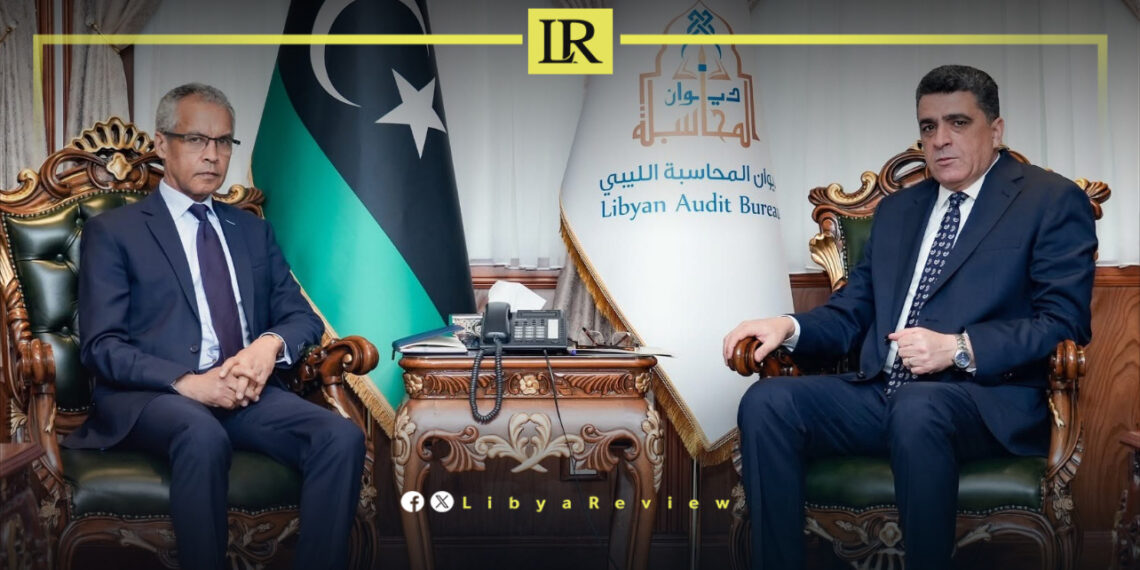Khaled Shakshak, the head of the Libyan Audit Bureau, met with the French Ambassador to Libya, Mostafa Mihraje, on Thursday in Tripoli.
The media office of the Audit Bureau reported that the meeting focused on the vital role the Audit Bureau plays in enhancing transparency in public financial management. This is primarily achieved through the bureau’s annual reports, which aim to improve the management of public resources and combat corruption.
The Libyan Audit Bureau’s chief emphasized the importance of ongoing audit activities to ensure justice in using public funds.
On his part, the French Ambassador expressed his country’s ongoing support for the Audit Bureau’s efforts to enhance transparency, highlighting cooperation’s significance in addressing current challenges in Libya and promoting good governance.
The meeting also explored potential cooperative initiatives between the Libyan Audit Bureau and the French Cour des Comptes (Court of Audit) aimed at exchanging expertise and strengthening audit capabilities, particularly in developing advanced audit methods and techniques.
Libya has been in chaos since a NATO-backed uprising toppled longtime leader Muammar Gaddafi in 2011. The county has for years been split between rival administrations.
Libya’s economy, heavily reliant on oil, has suffered due to the ongoing conflict. The instability has led to fluctuations in oil production and prices, impacting the global oil market and Libya’s economy.
The conflict has led to a significant humanitarian crisis in Libya, with thousands of people killed, and many more displaced. Migrants and refugees using Libya as a transit point to Europe have also faced dire conditions.
The planned elections for December 2021 were delayed due to disagreements over election laws and the eligibility of certain candidates. This delay has raised concerns about the feasibility of a peaceful political transition.
Despite the ceasefire, security remains a significant concern with sporadic fighting and the presence of mercenaries and foreign fighters. The unification of the military and the removal of foreign forces are crucial challenges.


